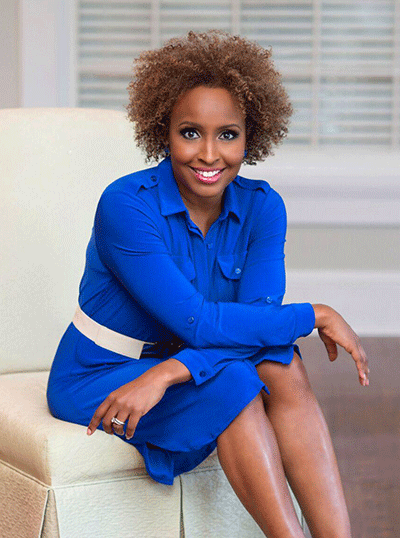As Arizona State University has worked to expand access to higher education, it has added services to support students who need a boost, including specialized peer coaching.
The First-Year Success Center offers one-on-one sessions for freshmen, with a specialized program for first-generation students called Game Changers. One key component of the center’s work is personal coaching, in which older students work with the younger students.
Marisel Herrera, the center's founding director, incorporated the training framework of the Coaching and Positive Psychology Institute into the ASU program several years ago, after reading books by Valorie Burton, the founder of the institute. ASU was the first university to adopt the CaPP method, which Herrera has found to be very effective.
Burton will be giving a three-day coach-training workshop at ASU's Downtown Phoenix campus next month, and faculty and staff get a 25 percent discount if they register by Monday, May 21.
Herrera, who has a certificate in personal-development coaching from the institute and is the director of training and development at the First-Year Success Center, said the training teaches critical skills like how to listen and how to ask questions.
“These skills are vital in moving what could be a transactional conversation on the surface to transformational ones that uncover a student's real goals, barriers and strengths,” she said.
“That is the beauty of the framework — it equips coaches to build relationships via conversation that have been proven to foster well-being, resilience and goal attainment and empowers the student and that don't just solely rely on near-peer mentorship approaches.”
Burton answered some questions from ASU Now about her personal-development coaching framework in the Coaching and Positive Psychology Institute.

Valorie Burton, founder of the Coaching and Positive Psychology Institute, will give a workshop at the Downtown Phoenix campus next week.
Question: The workshop will address listening skills. Why is listening important for a coach, and why is it a skill that is sometimes overlooked?
Answer: Mindful listening is the first critical skill of effective coaching. A great coach hears not only words, but also voice tone, body language, hesitation, anxiety and excitement. He or she hears what is said, and also what is not said. This deep approach to listening offers clues to help a person get clarity about purpose and direction, and create a successful strategy to foresee and break through obstacles.
Q: Is resilience a skill that can be taught to anybody?
A: Yes, resilience is a skill that can be learned — and anyone wanting to succeed at high levels must learn it. Navigating change, setbacks and opportunities is necessary for a fulfilling life and career.
Q: ASU's First-Year Student Success program has used the CaPP framework for its peer coaches who work with first-year freshmen. How is coaching an especially helpful technique for this group, as opposed to other kinds of interventions?
A: Coaching is very practical and actionable. I believe it particularly helpful for first-year students because they are in transition, and they are making many adjustments, facing new challenges and want to succeed. Having the support of a coach who is in your corner gives a student a sounding board and someone with whom to intentionally make decisions and take actions that lead to successful outcomes.
Q: Why is your focus on positivity?
A: Our focus is on positive psychology, the study of well-being, success and optimal human functioning. Positive psychology is a strong foundation for powerful coaching and offers a research basis from which to coach others.
The workshop will be June 16–18 in the A.E. England Building at the Downtown Phoenix campus, and participants will earn a certificate. Register now at the CaPP website using the password Arizona (the password is case-sensitive).
More Science and technology

ASU researchers shed light on ancient tattoos in the Nile Valley
Long after an archaeological excavation, discoveries can still be made. One such example of this is newly discovered tattoos from ancient Nubia, nearly doubling the amount previously known from the…

ASU’s LEAPS lab marks a decade of energy impact
Nathan Johnson doesn't mince words when it comes to Earth's energy requirements.“The world needs every electron it can get to match the accelerated pace of economic development and electrification,”…

Smarter tools for peering into the microscopic world
The microscopic organisms that fill our bodies, soils, oceans and atmosphere play essential roles in human health and the planet’s ecosystems. Yet even with modern DNA sequencing, figuring out what…
